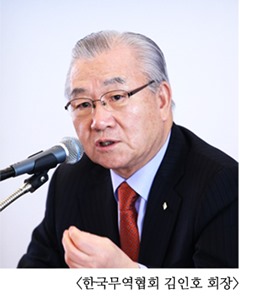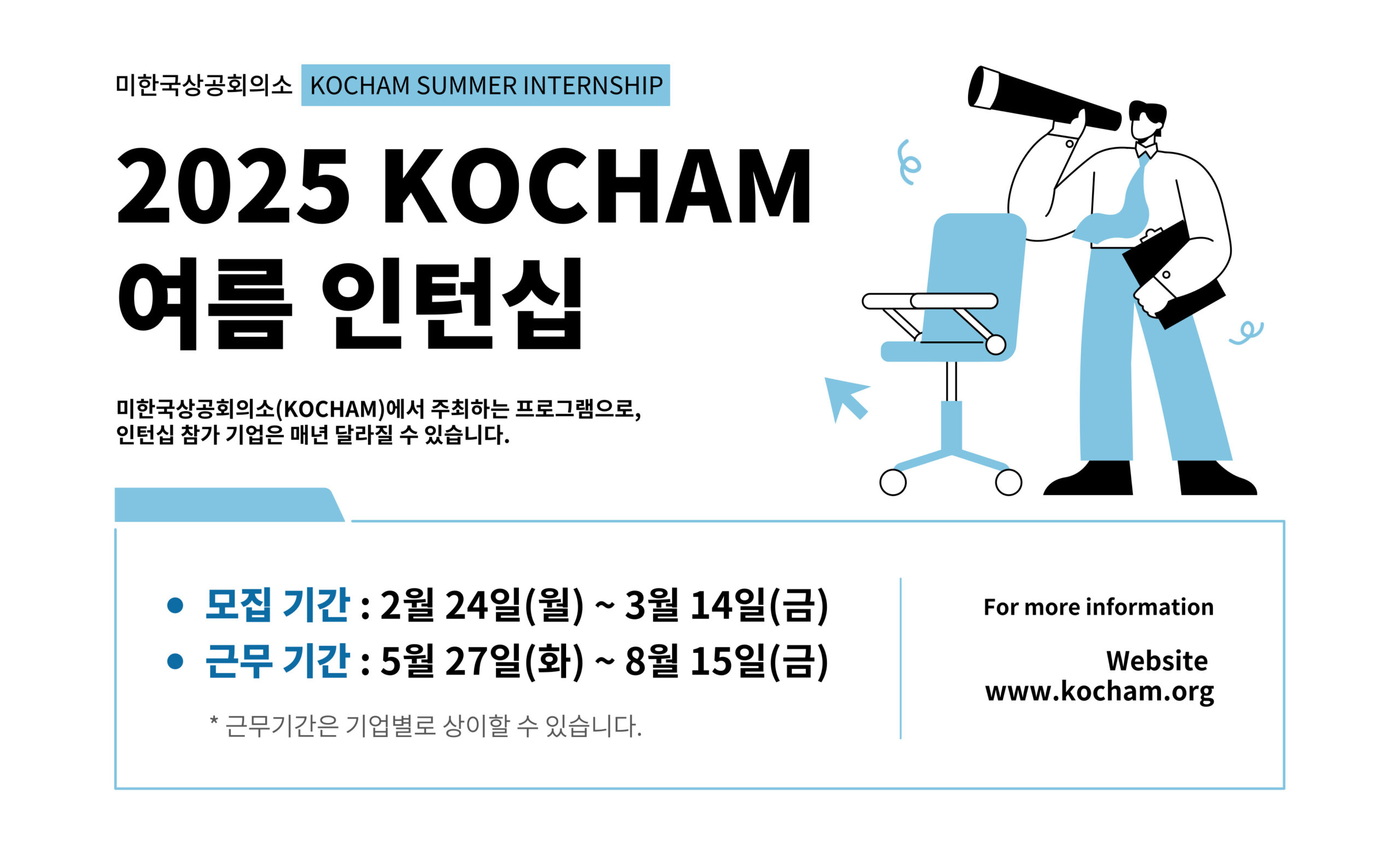트럼프의 통상 관련 발언 우방(友邦)을 불안하게 만들어
– 한국 지도자들, 미국과의 무역협정에 비판적인 트럼프 당선시 비즈니스에 악영향 우려 –
미국산 체리는 한국에서 널리 사랑받고 있고, 오바마 대통령은 한국이“미국의 가장 가까운 동맹이자 친구의 나라”라고 말했다. 한국의 롯데백화점 프리미엄 코너에는 워싱턴 주에서 생산된 미국산 체리가 한 바구니에 9천원, 약 8불에 팔리고 있다.
이 돈은 한국 사람들의 돈이 미국 자동차 메이커, 하이테크 업체 등에게 급격히 유입되는 계기가 된 2012년 한-미 FTA의 발효 이후, 수출 증가를 직접 경험한 미국의 농부들에게 돌아가고 있다. 미국산 자동차, 소고기, 기계류 등의 급격한 증가와 더불어 미국산 체리 수출은 2011년 이후 172%나 폭발적으로 늘어나 1억 9백만불에 달했다.
하지만 한-미 FTA는 공화당 대통령 후보 지명자인 도날드 트럼프로부터 뭇매를 맞고 있다. 그는 지난달 공화당 전당대회에서 한-미 FTA를‘일자리를 빼앗은 무역협정’으로 지목했다. 이러한 공격들은 미국의 최대 무역파트너 중 하나로 5천마일 떨어진 한국에 걱정거리를 안겨주고 있다.
7만여개 회원사를 가지고 있어 사실상 한국 무역 업계 전체를 대변하는 한국무역협회 김인호 회장은“한국의 기업인들은 현재의 이런 분위기를 매우 우려하고 있다”며“자유무역협정을 반대하는 사람들은 본인들도 이해하지 못하는 숫자와 통계들을 사용하고 있다”고 언급했다.
이러한 긴장은 트럼프의 보호주의적 발언이 미국에서만 논쟁을 불러일으키는 것이 아님을 보여준다. 미국의 업계와 외교관들이 오랫동안 확보하려고 했던 미국의 무역 파트너십 기반을 저해하는 것으로서, 해외에도 걱정거리를 던져주고 있는 것이다. 지난 주 프랑스의 올랑드 대통령은“만약 미국이 트럼프를 선택한다면, 미국은 그에 따른 결과를 치르게 될 것”이며“미국의 선거는 전 세계의 선거와 다름없다”고 말했다.
트럼프 측은 북미자유무역협정(NAFTA) 다음으로 최대 규모의 무역협정인 한-미 FTA에 대해서 이례적으로 열변을 토하고 있다. 트럼프의 외교 정책을 관장하는 제프 세션즈(Jeff Sessions) 연방 상원의원(알라바마주)은 과거에 한-미 FTA를 지지하였으나 지금은‘실수’였다고 말하고 있다. 트럼프의 외교정책 자문역인 왈리드 페어즈(Walid Phares)는 지난 5월 한국 최대 뉴스매체인 연합뉴스와의 인터뷰에서“트럼프는 한-미 FTA를 원점에서 재검토하기를 바라고 있다”고 말했다.
트럼프는 최근 한-미 FTA에 대한 비난의 목소리를 높이고 있는데, 6월에는“한-미 FTA가 미국의 일자리 10만개를 빼앗아 갔다”라고 주장했다. 하지만 이 주장은 워싱턴 포스트가 확인한 바에 의하면“잘못된(misleading)”계산법에 의한 것이다. 또한, 2011년 그의 저서 ‘Time to Get Tough’에서 트럼프는“오바마가 맺은 한-미 FTA는 너무 나쁘고 부끄럽다”고 밝히며 “도대체 누가 그런 협정에 사인을 할 수 있는지 믿기 힘들다”고 썼다.
한국은 미국 방위 전략의 핵심이다. 한국은 중국 및 북한과 인근에 위치해 있으며, 미군 참모들이 오랜 기간 중동 중심의 방위전략을 고수한 이후 재균형(rebalance) 전략을 추진하고 있는 아시아-태평양 지역에서 가장 중요한 허브 중 하나이다.
그러나, 트럼프는 수십 년간 지속되어 온 한-미 방위 조약에 대해서도 문제를 삼고 있다. 트럼프는 28,000명 이상의 주한 미군 주둔비용을 한국이 모두 부담해야 한다고 주장하고 있으며, (실제로 한국은 그 비용의 절반에 달하는 9억불을 매년 지불하고 있다) 한국이 부담하지 않을 경우 주한 미군 철수를 포함한 강경한 입장을 고수해야 한다고 말했다.
트럼프의 부상은 한국에서 큰 화제가 되고 있는데, 한국은 미국의 한국전 참전 이후 미국 문제에 많은 관심을 보여 왔다. 한국은 미국의 6대 교역 대상국으로 이는 영국, 프랑스, 대만을 앞서는 것이다. 어떤 이들은 트럼프의 부상이 지난 6월 영국의 EU 탈퇴 선거에 영향을 끼쳤다고 생각하고 있으며, 또 일부는 서방 국가들로부터 미국산 수입이 줄어들 수 있음을 우려하고 있다.
2012년 발효된 한-미 FTA는 20년에 걸쳐 양국 간의 관세와 무역 장벽을 없애는 것으로, 미국 기업들에게 미국산 제품을 더 많이 팔 수 있는 기회를 제공한다. 이는 주요 아시아 국가와의 최초의 자유무역 협정이며 향후 미국이 체결할 무역협정의 모델이기도 하다.
미국의 한-미 FTA 반대론자들은 한국이 의류와 다른 제품들을 더 저렴하게 생산할 수 있어 미국의 일자리를 빼앗아갈 것이라고 우려하였다. 한국의 기업인들도 미국의 값싼 소고기와 농산물들의 수입이 증가할 것이라며 비슷한 반응을 보였다.
2012년 협정이 발효된 이래 2015년 미국 Census 기준 미국의 현대 및 기아자동차, 삼성전자 휴대폰, LG전자 텔레비전과 기타 제품의 대한국 수입은 18% 증가한 710억불에 달하였다. 그러나 미국의 대한국 수출은 3% 증가한 430억불로 나타났다.
트럼프와 소비자 권익단체인 Public Citizen을 포함한 반대 세력은 두 숫자의 차이, 즉 무역수지 적자를 언급하며 미국이 불리한 무역 협정을 맺었다고 주장한다.
그러나 한-미 FTA 협상 비준 작업에 참여했던 정철 대외경제정책연구원 무역통상본부장은 미국 중산층의 우려가 동 협정 때문이라는 트럼프의 비난은‘진부한 표현(cliche)’이라며 “미국은 한-미 FTA로 어려움을 겪고 있는 것이 아니라, 한-미 FTA로 오히려 이득을 보고 있다. 미국 소비자들이 보고 있는 혜택을 생각해보면 논란의 여지가 없다”고 말했다.
한-미 FTA 협정이 미국 경제에 어떤 결과를 가져왔는지 평가하는 것은 쉽지 않다. 지난 4월 미국의 한국에 대한 상품 수출은 2010년 이후 최저 수준으로 떨어졌다. 이는 아마도 한국 경제가 침체기라 수입 수요가 줄었기 때문으로 볼 수 있을 것이다. 그리고 미국의 한국에 대한 무역수지 적자는 2015년 280억불을 기록하며 한-미 FTA가 발효된 이후 두 배가 되었다.
성공 스토리도 있다. 자동차, 의약품, 기계 그리고 다른 미국산 제품들의 한국에 대한 수출은 2011년과 2015년 사이 8% 증가하였는데 이는 미국산 제품의 다른 나라 수출 증가율의 2배 이상이다.
미국 국제무역위원회(ITC)는 지난 6월 한-미 FTA가 실제로 지난해 한국에 대한 무역수지를 158억불 개선시켰다고 밝혔다. 이는 한미 FTA가 아니었다면 무역적자는 훨씬 컸을 것이라는 것을 의미한다.
관세를 높이는 것은 외국 기업들이 미국 소비자에게 파는 제품에 대한 가격을 인상시키게 만든다고 경제학자들은 주장한다. 이러한 관세 인상은 다른 나라의 관세도 올리도록 만들어 미국 기업들의 수출에도 지장을 주게 된다.
미국 기업들이 개방 무역에서 어떻게 이득을 보는지에 대한 사례 연구를 위해서 미국 블루베리 산업의 경우를 살펴보자. 미국은 2014년 3억 3,400만 파운드의 블루베리를 생산하는 세계 최대 블루베리 수출국이다. 하지만 ITC에 따르면 무역 규제와 고율의 관세가 2011년까지 한국 시장 진출을 막고 있었다.
한미 FTA 이후 베리류의 대한국 수출은 급격히 늘어났고 수백만 달러의 수익을 미국 생산자들에게 안겨주었다. 한국인들은 건강상의 이점 때문에 베리를 사랑하지만 한국은 재배 농지가 부족하다. 따라서 48시간 안에 베리를 가져올 수 있는 오레곤에서 베리를 수입하는 것은 매우 적절한 조치이다. 한국의 미국산 블루베리, 크랜베리 그리고 유사한 종류의 과일 수입은 한-미 FTA 이전 100톤 이하에서 지난해 600톤 이상으로 늘었다고 ITC는 밝히고 있다.
상품 교환 외에도 한국과의 교역은 여러 가지 이점을 가져다 준다. 미국은 실제로 오랫동안 상품 외 서비스 수출에서는 흑자를 보고 있다. 미국 기업들은 주로 관광, 회계, 기술, 엔터테인먼트 등 서비스 분야에서 지난해 수입보다 100억불 이상을 더 수출하였다. 이는 2011년 70억불에 비해 크게 늘어난 수치이다.
한류로 인한 K-pop 뮤직, TV 드라마, 싸이의 ‘강남 스타일’과 같은 한국의 팝 문화가 전 세계적으로 히트를 치면서 한국은 불법 다운로드에 대한 감독을 강화하고 미국 음악, 소프트웨어와 다른 지적 재산권들에 대한 로열티에 더 많은 비용을 지출하고 있다. 한국 산업계는 앨라배마의 현대차 공장과 텍사스 오스틴 삼성 반도체공장을 비롯하여 미국 내 수 천개 일자리를 제공하고 있다.
트럼프처럼 힐러리 클린턴 민주당 대선 후보도 오바마 대통령이 일본, 베트남, 호주 등 11개국과 협상을 완료한 TPP에 대해 반대의 목소리를 내고 있다. 힐러리는 미국, 캐나다, 멕시코와 1994년 체결한 NAFTA 협정을 재검토 하겠다고 말했다. 하지만 트럼프와 달리 클린턴 후보는 미국이 글로벌 통상 협정을 폐기해야 한다거나 엄청난 피해를 주는 협정이라고 한-미 FTA를 특정하지는 않았다.
트럼프의 주장에 대한 해외의 우려는 한국에만 국한된 것이 아니다. 이반카 의류 회사를 위해 일 년에 2백만 켤레 이상 신발을 생산하는 중국기업 Huajin Group 담당자는 보호무역 정책을 약속한 트럼프의 공약을 심각하게 우려하고 있다고 전했다.
김인호 한국무역협회 회장과 마찬가지로 다른 사람들도 트럼프의 주장이 단지 정치적 승리를 위한 것일 뿐이기를 희망하고 있다.
“선거를 앞둔 정치인들은 표를 얻는데 집중한다. 그들은 원하는 것은 무엇이든 말할 수 있다”며 김인호 회장은 서울의 강남 지역이 내려다보이는 트레이드 타워 집무실에서 웃으며 말했다. “특정 후보가 선거 과정에서 공약한 것들이 모두 이루어질 것이라고 보지 않는다.”
원본 기사]
Trump’s trade talk is scaring one of America’s ‘greatest friends’
SEOUL — American cherries are widely adored in South Korea, the Asian nation that President Obama has called “one of America’s closest allies and greatest friends.” In the “premium” section of a bustling Lotte department store here, a small case of cherries from Washington state sells for 9,000 won, or about $8.
That money winds quickly back to American farmers, who have seen their exports soar since a 2012 U.S.-South Korea free-trade agreement triggered a flood of new cash from Koreans to American automakers, tech firms and other companies. U.S. cherry exports have exploded 172 percent since 2011, to $109 million, alongside similarly rapid rises of made-in-America cars, beef and machines.
But the agreement has come under fire from GOP presidential nominee Donald Trump, who in his Republican National Convention speech last month targeted the agreement as a “job-killing trade deal.” Those attacks have sent ripples of anxiety through South Korea, leading many in one of America’s top trade partners to pay close attention to an election 5,000 miles away.
“The atmosphere is very worrying for business leaders in Korea,” said Kim In-ho, chairman of the Korea International Trade Association, the industry group that represents nearly all of the country’s international-trade business, roughly 70,000 companies. “Opponents of the free-trade agreement are using numbers and figures they don’t understand.”
That tension shows how Trump’s protectionist talk has not just spurred a debate over trade at home. It has also sent a wave of anxiety abroad, threatening to undermine the trade partnerships U.S. businesses and diplomats worked for years to secure. “If the Americans choose Trump, that will have consequences,” French President François Hollande said last week. “An American election is a world election.”
Trump’s campaign has focused exceptional heat on the South Korean agreement, the second-largest U.S. free-trade deal (after the North American Free Trade Agreement, or NAFTA). Sen. Jeff Sessions, the Alabama Republican overseeing Trump’s foreign policy team, previously supported the U.S.-South Korea deal but now says it was a “mistake.” Trump foreign policy adviser Walid Phares told journalists at Yonhap, South Korea’s biggest news agency, in May that Trump wanted to “go back to ground zero” in the deal.
Trump’s recent campaigning extends a long-running criticism of the South Korean deal, which in June he said “destroyed nearly 100,000 American jobs” — a claim made using calculations that The Washington Post’s Fact Checker has called “misleading.” In his 2011 book “Time to Get Tough,” Trump criticized “the deal Obama cut with South Korea” as “so bad, so embarrassing, that you can hardly believe anyone would sign such a thing.”
South Korea occupies a central point of U.S. defense strategy: Seated near North Korea and China, it serves as one of the U.S. military’s largest hubs in the Asia-Pacific, an area of the world that military chiefs have sought to “rebalance” after years of focus on the Middle East.
But Trump has also targeted the two countries’ decades-old military agreement. Trump has said that South Korea should pay all of the costs for the more than 28,000 U.S. troops stationed there — Korea pays half the cost, or roughly $900 million. to station U.S. troops — and that the United States should play hardball, including potentially withdrawing troops, unless Seoul pays.
Trump’s rise has become a near-constant talking point in South Korea, which since the American intervention in the Korean War has taken a keen interest in U.S. affairs. South Korea is the United States’ sixth-largest trading partner, besting Britain, France and Taiwan. Some link Trump’s ascendancy with the British vote in June to leave the European Union, known as Brexit, as another worrying sign of retrenchment among the importers of the West.
The U.S.-South Korea trade deal, which took effect in 2012, launched a 20-year process that would squash tariff barriers between the two countries and give U.S. companies a chance at selling more made-in-America goods. It became the United States’ first free-trade agreement with a major Asian economy and a model for deals to come.
Opponents in the United States worried that the deal would squeeze out American jobs, because Korean manufacturers could more cheaply produce clothes and other goods. Some Korean businesses responded similarly, worrying about the sudden import of cheap American beef and agricultural goods.
Since 2012, when the free-trade agreement was signed, U.S. imports from South Korea have climbed 18 percent, to $71 billion worth of Kia and Hyundai cars, Samsung phones, LG televisions and other items, Census trade data from 2015 shows. But U.S. exports to South Korea have also grown 3 percent, to $43 billion.
Trump and other advocates, including the consumer rights group Public Citizen, have pointed to the difference between those two numbers, or the trade deficit, to suggest that the United States is getting a bitter deal.
But Chul Chung, a vice president at the Korea Institute for International Economic Policy who worked to ratify the U.S.- South Korea agreement, said that Trump blaming free trade for the woes of the American middle class was “an old cliche.”
“The U.S. is not suffering from the free-trade agreement. It is enjoying it. Think about the benefits to the consumer. It’s no question,” Chung said.
Evaluating how much the deal has done for the United States can be tricky. In April, exports of U.S. goods to South Korea fell to their lowest point since 2010 — probably because the South Korean economy has slowed, hurting import demand — although U.S. exports have recovered in the months since. And the U.S.-to-South Korea trade deficit has doubled since the agreement began, to $28 billion in 2015.
There are also success stories. Exports of cars, pharmaceuticals, machinery and other made-in-America goods to South Korea climbed 8 percent between 2011 and 2015, to $37.3 billion — more than twice as fast as similar U.S. exports rose to the rest of the world, federal data shows.
The International Trade Commission (ITC), a bipartisan federal trade group, said in June that the trade agreement actually improved the trade balance between the United States and South Korea by $15.8 billion last year — meaning that, without the deal, the U.S. trade deficit would have been even bigger.
Expanding tariffs on U.S. trade would probably cause those foreign companies to raise prices on the items they sell to American consumers, economists argue. Those U.S. tariffs also would probably cause other countries to impose their own, hurting the American businesses that make goods sold overseas.
For a case study of how U.S. companies can benefit from open trade, look no further than the American business of plump, fresh blueberries. The United States is the world’s leading global exporter of blueberries, producing 334 million pounds in 2014, but trade restrictions and high tariffs prevented their import into South Korea until 2011, according to the ITC.
Since the trade deal, U.S. berry exports to South Korea have soared, sending millions of dollars back to U.S. growers. Koreans love berries’ health benefits but have limited land for farms, so importing from Oregon — where growers can move fresh berries from farm to market in less than 48 hours — just made sense. South Korea’s imports of fresh U.S. blueberries, cranberries and similar fruits have grown from less than 100 metric tons before the deal to more than 600 metric tons last year, an ITC report shows.
Besides the swapping of basic goods, trade with South Korea provides a few other benefits. The United States actually has a years-long trade surplus with South Korea not in goods, but in services: American companies exported $10 billion more in services — mostly toward travel, accounting, technology, entertainment and other services — than they imported last year, up from $7 billion in 2011, Census data show.
As South Korea’s pop culture has taken off globally — aided by a “Korean Wave” of K-pop music, TV dramas and global hits like Psy’s “Gangnam Style” — the country has tightened its grip on piracy and paid far more money toward royalties and rights for American music, software and other intellectual property: more than $6 billion to the United States in 2014, data shows. South Korean businesses also create thousands of jobs in the United States, including at a Hyundai plant in Alabama and the Samsung Austin Semiconductor center in Texas.
Like Trump, Democratic presidential nominee Hillary Clinton has voiced opposition to the Trans-Pacific Partnership (TPP) negotiated by Obama with 11 countries, including Japan, Vietnam and Australia. She has said she would review trade deals such as NAFTA, the 1994 agreement signed by the United States, Canada and Mexico. But, unlike Trump, Clinton has not called for the United States to exit global trade agreements or singled out the South Korean deal as specifically damaging.
Foreign anxiety over Trump’s pledges is not exclusive to South Korea. A representative for Huajian Group, the Chinese company that makes 2 million pairs of shoes a year for Ivanka Trump’s apparel line, told the Global Times last month that Donald Trump’s “promises to set up protectionist trade policies” had the company deeply worried.
Others, like the chairman of the Korea International Trade Association, said they were hopeful that Trump’s claims were merely assurances made to win political points.
“Politicians before any election are into winning votes. They can say whatever they want,” Kim said with a laugh from his office in the Trade Tower overlooking Seoul’s Gangnam district. “I don’t think all the pledges made by a certain candidate will be realized.”


